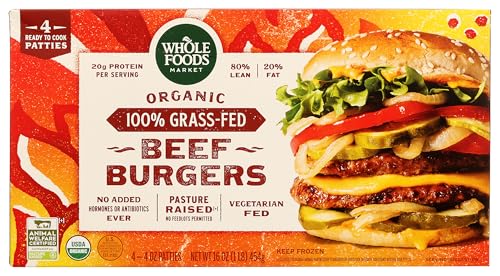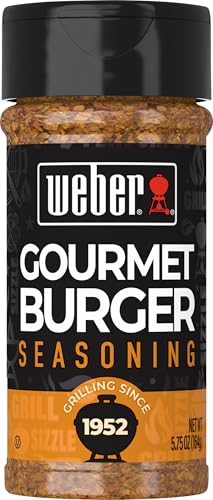Key Takeaways
- Sustainable Sourcing: Sustainable beef burgers utilize beef from environmentally friendly practices, ensuring humane treatment of cattle and responsible grazing that benefits the ecosystem.
- Environmental Benefits: Implementing sustainable practices in beef production reduces greenhouse gas emissions, preserves natural habitats, and enhances animal welfare, making a positive impact on the planet.
- Nutritional Advantages: Sustainable beef burgers often contain more essential nutrients, such as omega-3 fatty acids, and have lower saturated fat levels compared to traditional beef burgers, promoting better health.
- Consumer Trends: There’s a growing demand for sustainable beef options, with consumers increasingly prioritizing local, grass-fed, and organic ingredients.
- Barriers to Adoption: While the benefits of sustainable beef are recognized, higher costs and limited availability can hinder consumer adoption, highlighting the need for increased awareness and access.
- Flavor Engagement: Grass-fed beef not only supports sustainability but also offers a unique flavor profile and aligns with a healthier cooking ethos, enhancing the burger experience for enthusiasts.
When I think about beef burgers, I can’t help but crave that juicy, mouthwatering bite. But lately, I’ve been wondering how we can enjoy this favorite without compromising our planet. Enter sustainable beef burgers—a delicious way to satisfy our cravings while being kinder to the environment.
Understanding Sustainable Beef Burgers
Sustainable beef burgers combine delightful flavors with environmentally conscious practices. As a burger enthusiast, I find it exciting to create these unique renditions that satisfy cravings while caring for the planet.
What Are Sustainable Beef Burgers?
Sustainable beef burgers use beef sourced from environmentally sustainable practices. These practices include responsible grazing, humane treatment of cattle, and minimal use of harmful chemicals. The cattle raised for these burgers often graze on pasturelands, promoting soil health and biodiversity. When I whip up a sustainable beef burger, I know I’m serving my friends something tasty and beneficial for the environment.
Importance of Sustainability in Beef Production
Sustainability in beef production tackles several critical issues. Reducing greenhouse gas emissions, preserving natural habitats, and promoting animal welfare are top priorities. Sustainable practices decrease the negative environmental impact while providing beef that’s healthier and more flavorful. These methods also support local farmers and encourage ethical farming, which has a ripple effect on communities. Crafting burgers with sustainably sourced beef allows me to share not just great flavors, but also positive values with those I care about.
Production Methods
Sustainable beef burgers showcase thoughtful production methods that support both flavor and the environment. I’m excited to dive into how these techniques enhance not only the quality of the burgers but also contribute to a healthier planet.
Grass-Fed vs. Grain-Fed
Choosing between grass-fed and grain-fed beef influences flavor and sustainability. Grass-fed cattle graze on natural pastures, resulting in lower fat content and a distinct, rich flavor profile. These cattle often roam freely, promoting better animal welfare and reducing methane emissions. Grain-fed beef, while more common, usually has higher fat content, creating a juicier burger. However, it relies on feedlots, where cattle experience more stress and potential environmental harm. I prefer using grass-fed beef for my burgers because it aligns with my sustainable cooking ethos, and it adds a unique taste that complements my creative burger recipes.
Environmental Impact of Different Practices
Understanding the environmental impact of beef production plays a crucial role in making sustainable choices. Grass-fed beef contributes to healthier soil as cattle naturally fertilize pastures, enhance biodiversity, and promote carbon storage. In contrast, grain-fed systems often result in heightened greenhouse gas emissions and soil degradation due to intensive farming practices. By utilizing methods that prioritize animal welfare and environmentally friendly grazing, I can create burgers that not only taste great but also support sustainable agriculture. These conscious choices resonate with my commitment to crafting delicious, innovative burgers while respecting our planet’s resources.
Nutritional Benefits
Sustainable beef burgers not only taste great but also pack a punch in terms of nutrition. They provide an excellent source of protein and essential vitamins while promoting better health choices.
Comparison with Traditional Beef Burgers
Sustainable beef burgers often rate higher in nutrients compared to traditional beef burgers. Grass-fed beef, commonly used in sustainable options, contains more omega-3 fatty acids, which support heart health. Traditional grain-fed beef, on the other hand, tends to have higher saturated fat levels. Research indicates that switching to grass-fed beef can lower cholesterol levels and reduce the risk of chronic illnesses. The minerals like zinc, iron, and B vitamins found in sustainable beef also contribute significantly to overall health, supporting energy levels and immune functions.
Health Benefits of Sustainable Beef
Sustainable beef offers numerous health benefits that cater to burger enthusiasts like me. Lower fat content in grass-fed beef translates to fewer calories without sacrificing flavor, making it a versatile ingredient for various burger styles. The presence of antioxidants, like vitamin E and beta-carotene, in grass-fed beef contributes to better skin and eye health. Plus, sustainable practices often mean no antibiotics or hormones, ensuring that what I grill is both delicious and safe. I love knowing that my passion for burgers aligns with healthier choices, allowing me to enjoy each bite guilt-free.
Consumer Perspectives
I’m excited to share how consumer choices are evolving in the realm of sustainable beef burgers. As a burger enthusiast, I notice a growing interest in not just flavor but also the ethical and environmental impact of our food.
Trends in Sustainable Meat Consumption
Consumers increasingly seek out sustainable options, shifting towards grass-fed beef and locally sourced ingredients. Many enjoy trying unique combinations that showcase rich flavors while supporting responsible practices. Popularity for organic practices also rises, with more burger lovers prioritizing freshness over mass-produced options. Festivals and gatherings often highlight sustainable meat, creating community discussions about its benefits. People appreciate transparency around sourcing, which boosts interest in understanding where their food comes from. Participating in cooking events or workshops shares the passion for sustainable cooking, encouraging friends and family to explore exciting new burger recipes together.
Barriers to Adoption
Adopting sustainable beef can pose challenges for some. Higher prices often deter budget-conscious consumers, even if they recognize the benefits. Accessibility plays a role too; not everyone has local sources for grass-fed beef or specialty shops that stock sustainable options. Awareness is another hurdle; some folks may not fully understand the environmental advantages of choosing sustainable meat. I encounter consumers who might feel overwhelmed by the numerous certifications and labels. Simplifying this knowledge and pushing for greater accessibility can help bridge this gap, encouraging more burger enthusiasts to support sustainable options without feeling intimidated.
Conclusion
Sustainable beef burgers offer a delicious way to enjoy my favorite food while being kind to the planet. By choosing grass-fed beef and supporting responsible practices, I can savor every bite knowing I’m making a positive impact. It’s exciting to see more people embracing these options and prioritizing ethical food choices.
As we continue to explore and share the joys of sustainable eating, I hope to inspire others to join me in this flavorful journey. Together, we can enjoy great food and contribute to a healthier world. So next time you fire up the grill, consider opting for a sustainable beef burger and taste the difference for yourself.











